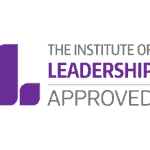
Work / Life Balance has become increasingly challenging with the expectation we are available 24/7. Always being ‘on’ and available may be a good thing initially when you are trying to build a business or get ahead in your career, but the price you ultimately pay can be too high when your stress levels reach an all-time high, and you are close to burn out or worse.
When we reach boiling point with our stress levels, it can have a severe impact on our mental health if not dealt with promptly.
Ignoring your stress levels can have many detrimental effects, both mental and physical. Our bodies respond with illness, aches and pains and even worse with debilitating and often agonising issues.
Our brains become overloaded to a point where they cannot cope with any more stress. Depression and anxiety become more permanent states of mind. Our sleep is disrupted our focus is gone, and overall health and wellbeing deteriorate to the point of collapse. Without immediate treatment, our bodies and minds will have a real challenge to recover.
Intervention
Being self-aware of our rapid decline at this point is not always easy. We begin to spiral out of control at such a rate it becomes harder and harder to slow the situation down without snowballing into the abyss. This is what it may feel like when it’s happening to you, but there is hope. There is always hope.
Realising, the problem is your first step to recovery. When the consequences of your increasing stress become too bad, then it’s time to ask for help. But where to turn?

- Family is usually the first port of call when it comes to asking for help. However, if they are the cause, then this won’t help although sharing with them how you’re feeling and how bad you have started to feel maybe a turning point in reducing the levels of stress.
- Doctors have much more awareness of how to
help you cope with increasing levels of stress. While medication may be an
option for some people, there are other ways in which your doctor can advise
you to manage your health. If the situation has become so overwhelming, you are
struggling to cope day-to-day, then your doctor may refer you for further
treatment such as counselling or Cognitive Behavioural Therapy.
- Talk to your boss, colleagues or HR. Your employers can help you to manage stress at work. If this is the source of your problem, then you must address the situation. Before entering a conversation at work, think about what you want to say, make a few notes and be prepared to put across the issues you are facing and why you find them so challenging. Being so stressed may mean that you are quite emotional, so preparing and making notes will help you to stay composed and get your points across in the way you want.
- Share your concerns with your colleagues.
Perhaps members of your team are going through something similar and can help
you with support or advice.
- Online there are some great resources and guides on how to help yourself when you recognise you need some help and support. From free advice and online training, there are also counselling services and support groups which can provide a wealth of knowledge and insight to helping you get well again. Some great resources include:
Mind offers an excellent section on their website all about mental health in the workplace. It provides a list of training courses, online and offline, plus some great events around the country to attend.
https://www.mind.org.uk/workplace/training-consultancy/
Adult Mental Health First Aid Workshops
Mental Health First Aid (MHFA) can be an integral part of a workplace mental health strategy. Courses are designed to reduce stigma through education and provide appropriate guidance at work for those experiencing issues of poor mental health.
https://yppp.wpengine.com/category/event/
The Mental Health Foundation Celebrates 70 years working towards good mental health for all. On their website, they offer some profound insights, research and education.
https://www.mentalhealth.org.uk/your-mental-health
The Be Mindful website provides knowledge and awareness on mindfulness: Its importance, how to use it to reduce stress and what it can do to prevent further mental health issues.
To find out how we can support your organisation’s mental health strategy call today on 01954 267640 or email info@yourpeoplepotential.co.uk



